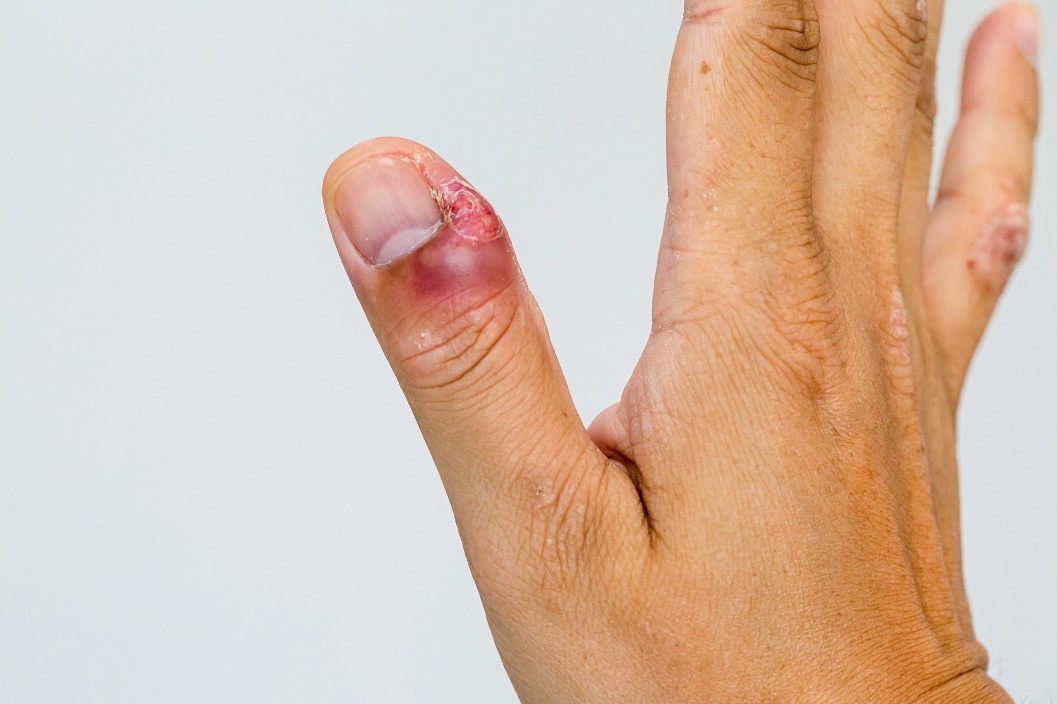
Bacterial infections, herpetic whitlow: what is it and when do I need to see a specialist?
Among the most common bacterial infections of the hand we can point to herpetic whitlow. This is a bacterial infection caused by staphylococcus or streptococcus that generally affects the extremities of the fingers of the hand
Among the causes of this infection we can point to bad habits such as nail-biting and peeling: these attitudes may create small lesions that make it easier for the bacteria that live in the skin to penetrate into the subcutaneous tissues.
What does it look like?
In the case of herpetic whitlow, the fingertips at the nail complex are red and cause severe pain, especially when touching the affected area.
In some cases the nail may appear abraded, or small abscesses may also occur near the nail.
Herpetic whitlow : is it contagious?
It is worth reiterating that whitlow is an infection, and like all infections it can infect other fingers if there are lesions that continue to occur, such as in cases where there is a habit of nail biting.
How to treat herpetic whitlow?
The first thing to do in the case of radiculitis is to consult a specialist, who will be able to set up a correct antibiotic therapy, possibly combined with specific medication.
There are cases in which it may be necessary to drain any accesses.
Herpetic whitlow: antibiotic ointments
Antibiotic ointments, if not chosen by an expert, can multiply the most dangerous bacteria and worsen symptoms.
Therefore, when symptoms do not disappear within a few days, it is best to contact a specialist.
How to drain herpetic whitlow?
The drainage of herpetic whitlow is a small operation, complicated by the presence of large amounts of bacterial material on the area, and should always be performed by a specialist in a protected and appropriate environment.
Herpetic whitlow: when to see a specialist?
A specialist should also be consulted when the raditus develops and does not resolve itself within 2-3 days.
For “do-it-yourself” medication, the risk is to use antibiotic creams or ointments not specified for the type of bacteria, which could encourage the development of more serious infections.
Read Also:
Emergency Live Even More…Live: Download The New Free App Of Your Newspaper For IOS And Android
A. Resistant Bacteria: The Important Discovery Of Australia
Bacterial Infections: When To Use Antibiotics?


